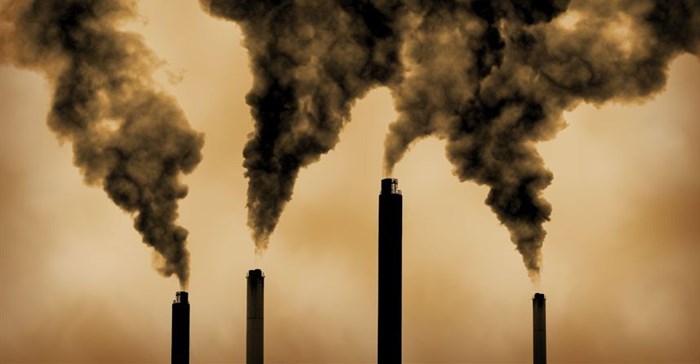The carbon tax is a fiscal instrument that puts a price on greenhouse gases emitted through the production of goods and services. It serves to internalise negative externalities, in other words, the social and environmental costs of carbon. As such, it is a critical tool in the fight against climate change – the greatest existential threat of our time, and no longer a remote one: many South Africans in rural areas and cities from Limpopo to the Western Cape are already affected.
The 2018 Intergovernmental Panel on Climate Change (IPPC) Special Report on Global Warming of 1.5°C states that we have 11 years to radically reduce our heat-trapping emissions if we want to have the slightest chance of keeping global warming below a 2°C increase. Even then, South Africa - a confirmed climate hotspot - will warm at twice as much as the global average. A frightening reality for our country: “There is no certainty that adaptation to a 4°C world is possible,” warns the World Bank. This is why an effective and just carbon tax is so important.
Harald Winkler and Andrew Marquard 31 May 2019
No impact on price of electricity
The ACRP welcomes speedy implementation of this measure, and the fact that carbon tax will not impact the price of electricity in the first implementation phase (2019-2022). The poor cannot afford higher electricity prices and its ripple effects. Reducing Eskom’s carbon emissions can be managed through the Integrated Resource Plan (IRP), a policy instrument, provided that it brings an even greater share of renewable energy into the electricity supply mix than envisaged in the latest updated draft from 2018.
However, ACRP highlights that during the first phase, the carbon tax is destined to fail to drive the much-needed rapid shift to a low carbon economy. The reasons are simple:
Until December 2022, the tax rate is set at R120 per ton of CO2 equivalent (tCO2e) of the greenhouse gas emissions, with annual increases as per consumer price inflation. Yet research by the High-Level Commission on Carbon Prices indicated in 2017 that a minimum carbon price should be in the range of R550 – R1,110 per tCO2e by 2020, if it is to be effective to achieve the Paris Agreement’s temperature increase target of “well below 2 degrees Celsius".
In addition, the number and scale of tax rebates applicable during the next two years undermine the effectiveness of the carbon tax system by offering significant rebates (from 60% to 95%) to most of the industries that are in fact the heaviest carbon emitters.
Excessive rebates
The low tax rate and excessive rebates in the carbon tax as implemented until 2022 will render it ineffective at leveraging a reorientation of the whole economy in a lower carbon direction, in a timeframe that is consistent with the urgency of climate change and South Africa’s commitments under the Paris Agreement. For a fair contribution to keeping global warming within “manageable” levels, South Africa needs to halve its carbon emissions in the next six years… Unfortunately, in its current form, the carbon tax will not help us achieve that.
For an effective and just carbon tax that serves the interests of all our fellow citizens and the planet, we must rather make the carbon tax more stringent to effectively put the social cost of carbon onto the emitters rather than the poor, while introducing measures that soften the blow for the economically marginalised, such as reducing the VAT rate which has a disproportionate impact on the poor, or conditioning rebates to demonstrated increased employment.
As part of its European Union co-funded ‘Action 24’ initiative to foster public participation in the shaping of environmental and climate legislation, ACRP submitted comments along those lines to Parliament and the National Council of Provinces, as they reviewed the Carbon Tax legislation before it was passed in March this year. Unfortunately, the legislator seems to have bought into the misguided idea that we need trade-offs between environmental sustainability and economic growth – when in fact they walk hand in hand.
Another reason for concern is the lack of detail from the government on the second phase of the tax, although we have been told that it will be strengthened over time. This means that all concerned citizens should call now for an effective and just carbon tax post-2022.






































